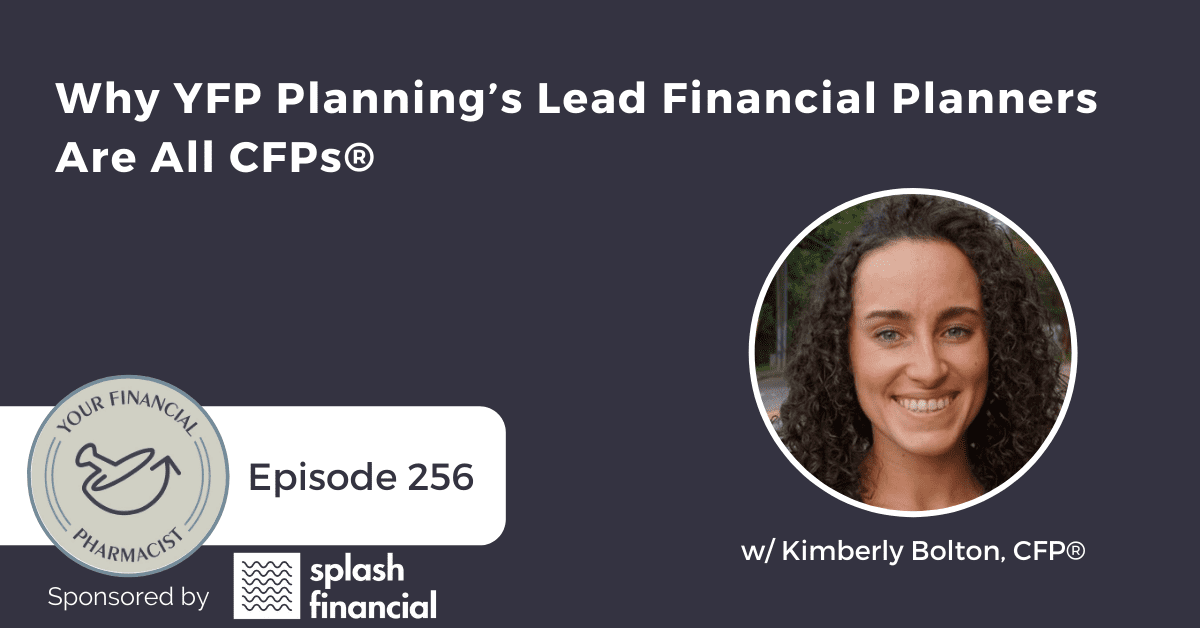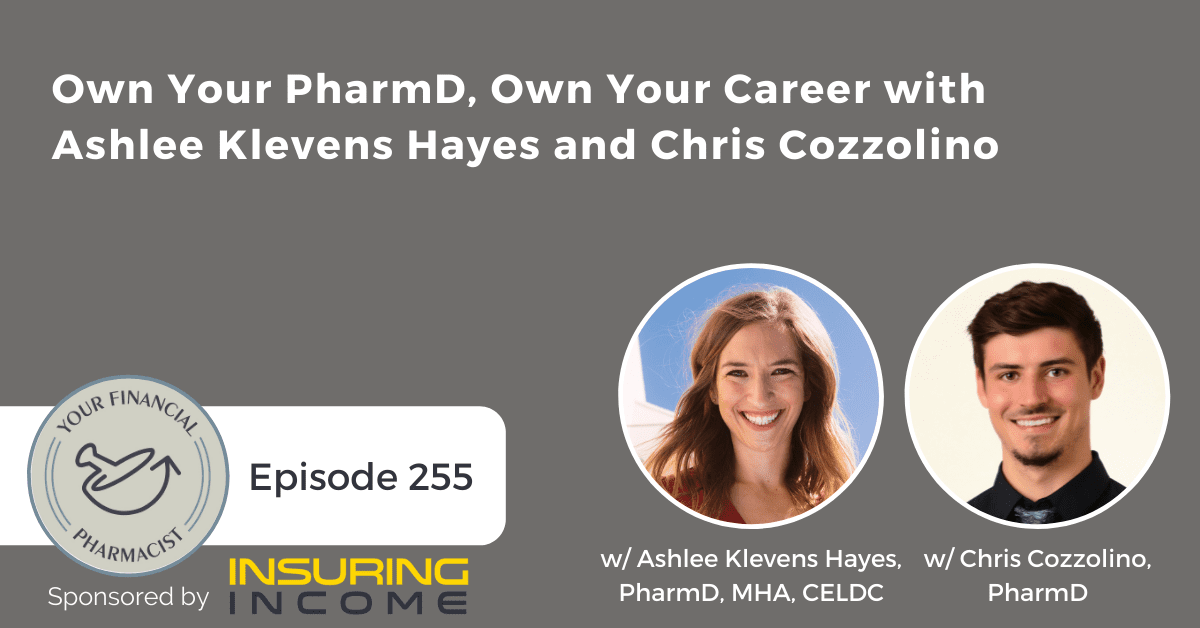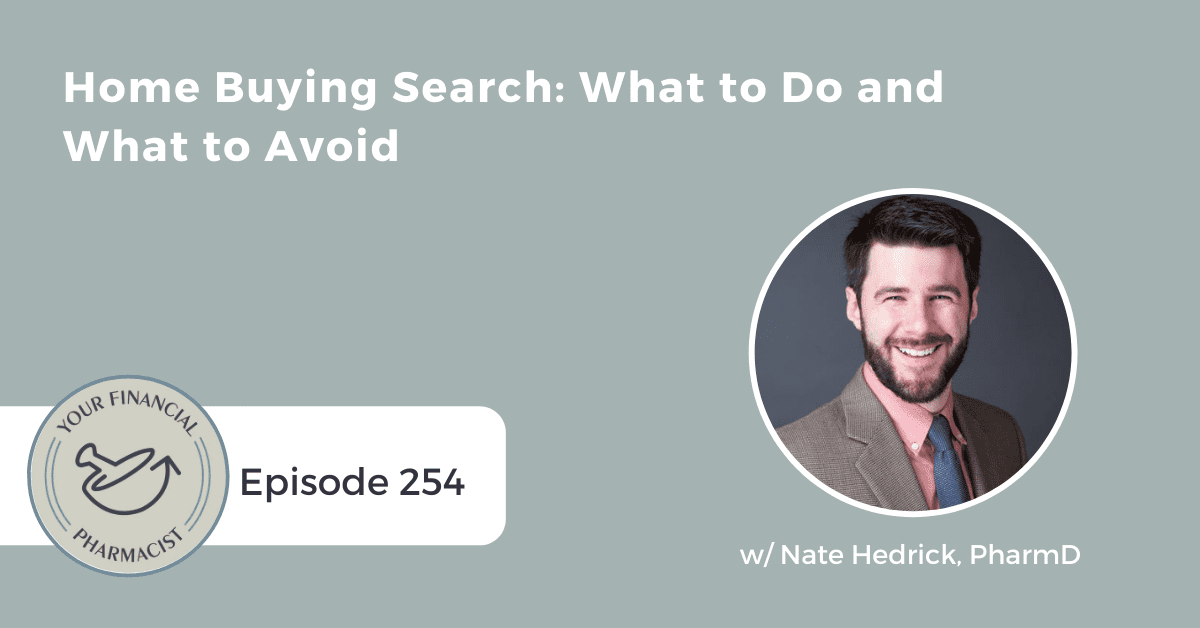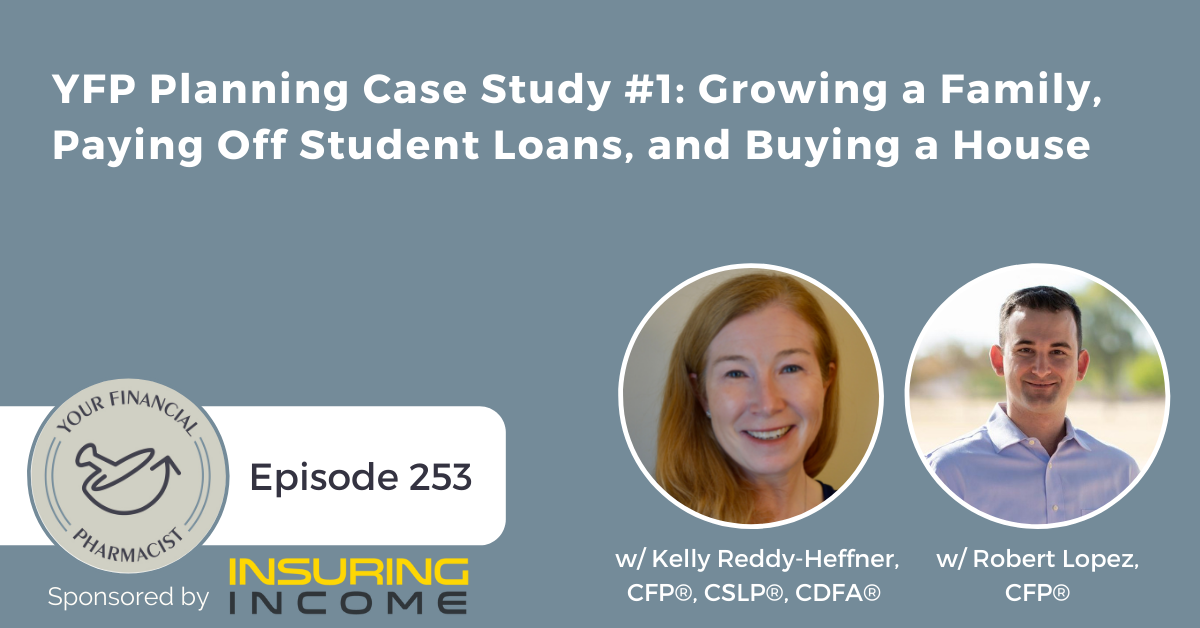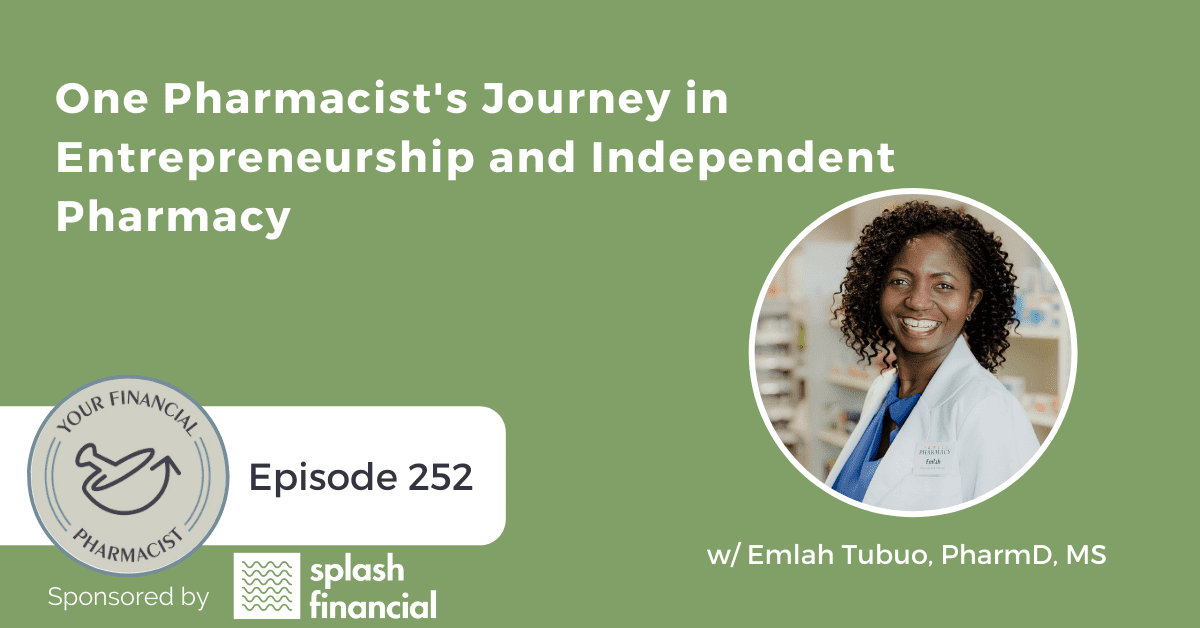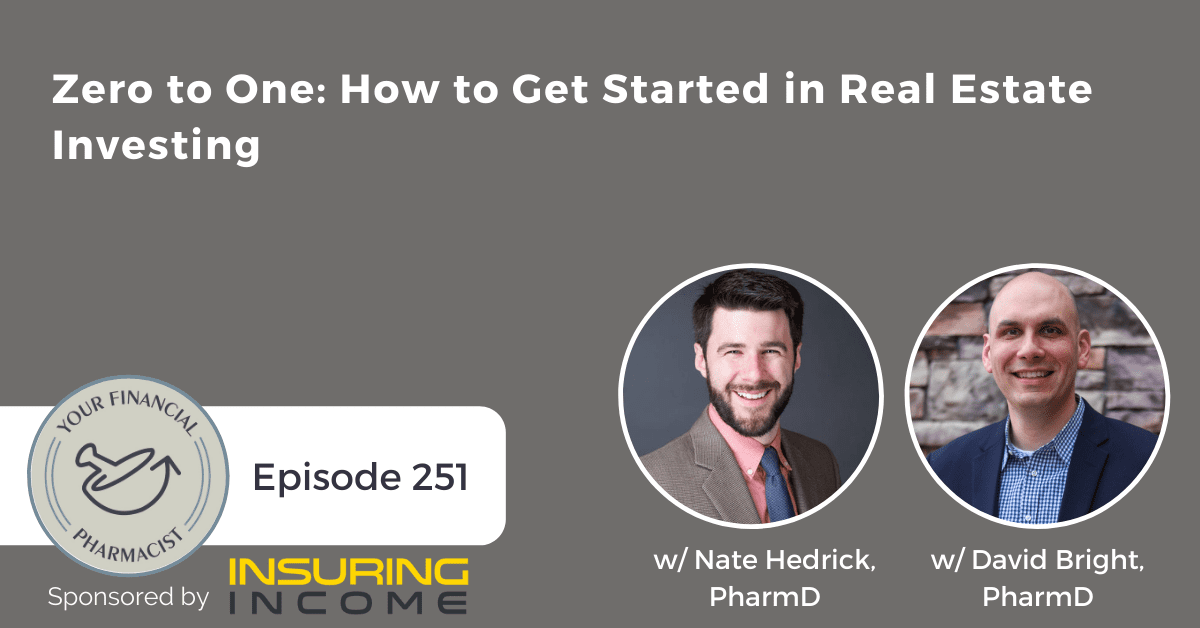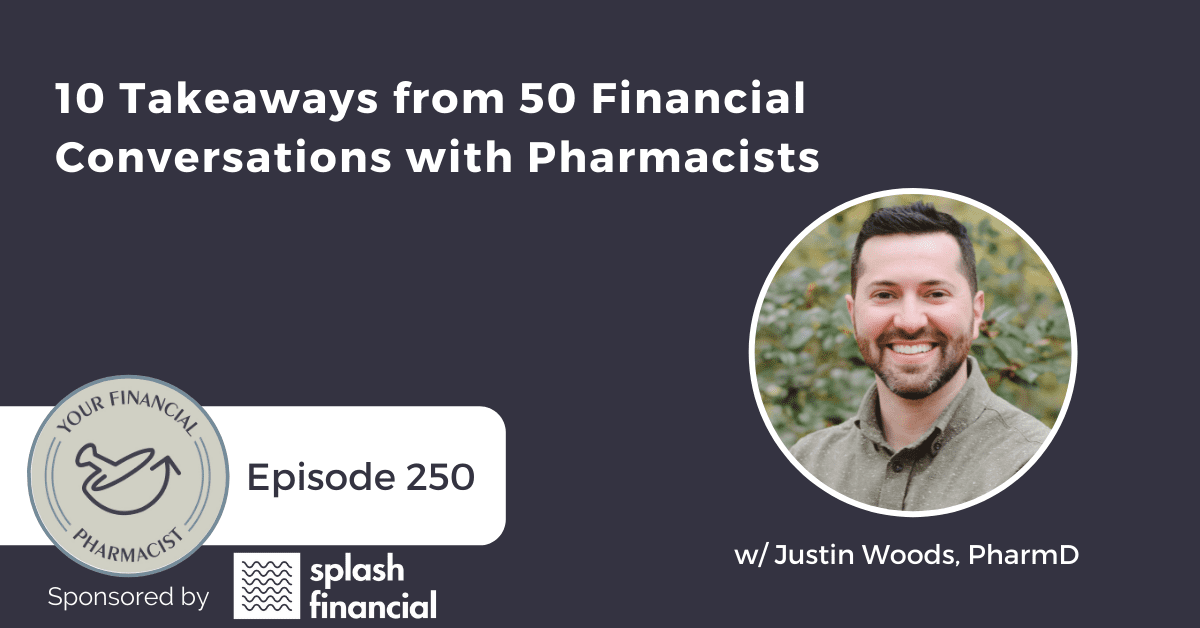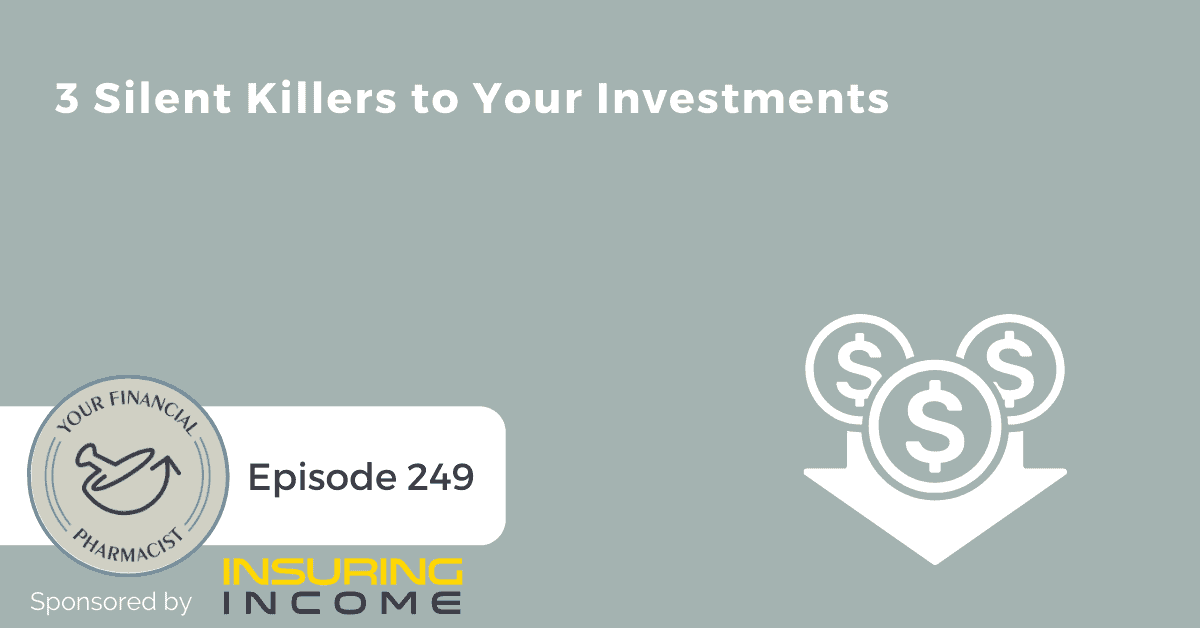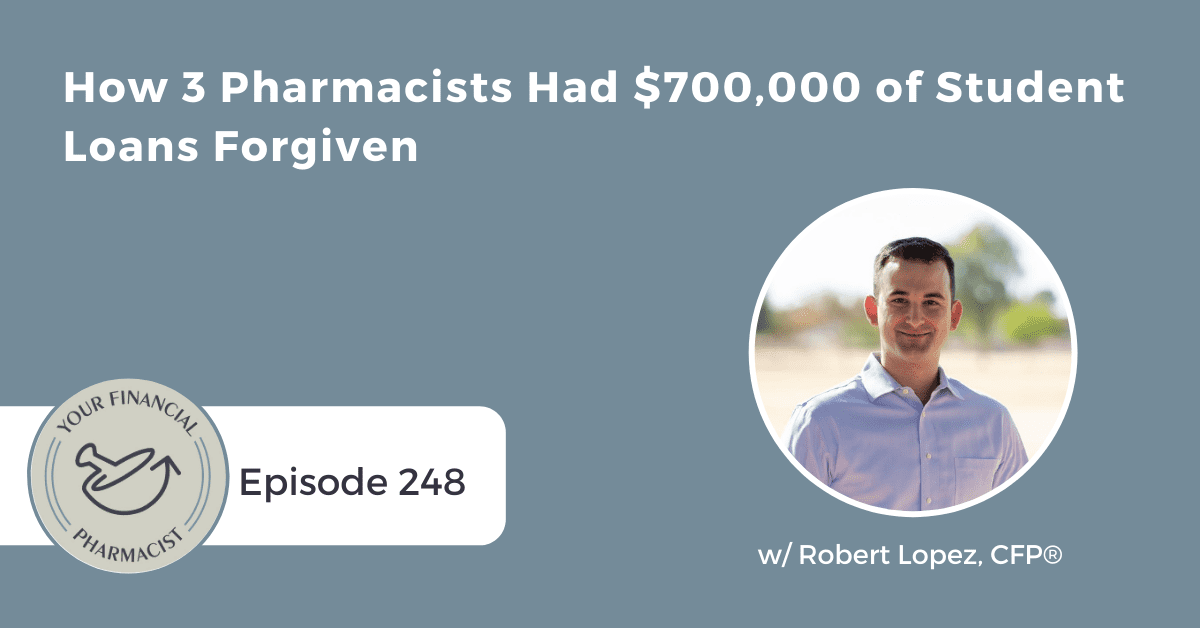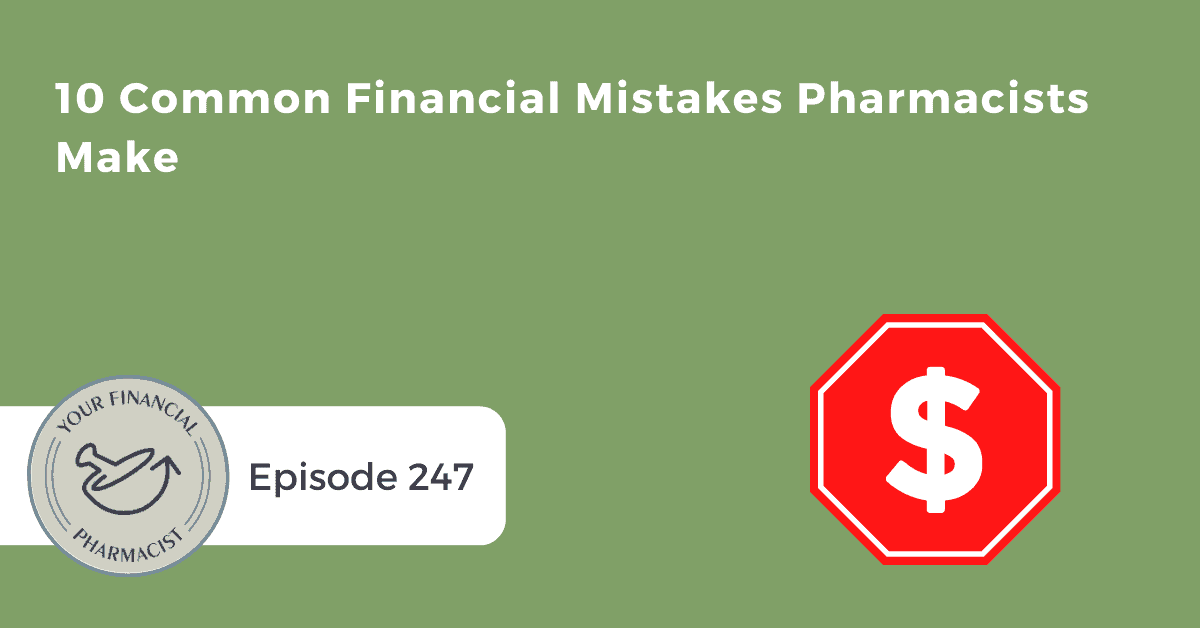Why YFP Planning’s Lead Financial Planners Are All CFPs®
On today’s episode, sponsored by Splash Financial, YFP Planning Financial Planner, Kimberly Bolton, CFP® discusses why the CFP® designation is the most valuable credential when providing comprehensive financial planning, why the term financial planner in and of itself doesn’t mean a whole lot, what questions you can ask to find a planner who is a good fit for you, and what someone can expect when working with a financial planner.
About Today’s Guest
Kimberly Bolton, CFP®, is a Financial Planner at YFP Planning. Along with her team members, Robert Lopez, CFP®, and Savannah Nichols, she strives to help YFP Planning clients on their financial journey to living their best lives. To go along with her CFP® designation, Kim has a B.S. in Consumer Sciences with a concentration in Family Financial Planning and Counseling. When not working, Kim enjoys being in the sunshine, hitting the gym, hiking, traveling, taking her dogs Nugget and Toot on adventures, being a food enthusiast with her husband Allen, and spending time with her bonus kids Brianna and Brady.
Episode Summary
This week, YFP Co-Founder & CEO, Tim Ulbrich, PharmD, sits down with YFP Planning Financial Planner, Kimberly Bolton, CFP®, to discuss why all of the lead financial planners at YFP Planning are CFPs®. In their discussion, Tim and Kim cover why Your Financial Pharmacist believes the CFP®, CERTIFIED FINANCIAL PLANNER, designation is the most valuable credential when providing comprehensive financial planning. Kim shares her personal story of becoming a CFP®, the rigorous education and experience requirements to become a CFP®, the comprehensive nature of the CFP® exam, the ethical standards associated with the credential, and why the CFP® is considered the most prestigious financial designation in the industry. She digs into why the term financial planner, or financial advisor, in and of itself doesn’t mean a whole lot, what specific questions you can ask to find a planner that is a good fit for you, and what someone can expect when working with a financial planner. Kim also explains common fee structures in the financial planning industry and why YFP Planning uses a fee-only structure. Tim shares a little bit of his own experience as a YFP Planning client himself, echoing Kim’s sentiment that the partnership between planner and client is an intimate one and that as a client, feeling comfortable with your planner will make an incredible difference in your experience. Kim closes with an awesome client success story, sharing how one couple was able to make their home-owning dreams come true years earlier than planned.
Key Points From This Episode
- Background on Kim’s professional journey to becoming a CFP®.
- What inspired her to pursue a career in financial planning.
- We find out about the work that Kim is currently involved with at YFP Planning.
- Why the YFP team believe so much in the CFP® designation.
- Some examples of how comprehensive the CFP® training is.
- How working with a certified CFP® is beneficial for the client.
- Kim tells us what is required to enter the CFP® course.
- What people taking the CFP® board exam can expect.
- Learn about the experience requirement needed after passing the exam.
- The expected ethical standards once you are certified.
- Differences in the types of CFP® planners in terms of fees and services.
- A brief breakdown of the different fee structures associated with CFP® planners.
- Examples of good questions to ask a financial planner to ensure they are the right fit for you.
- Kim shares a success story about working with a CFP®.
Highlights
“If you do any research on it, you’ll see that [being a Certified Financial Planner] is titled the most prestigious financial designation that you can have within the industry.” — Kimberly Bolton, CFP® [0:10:02]
“Here at YFP, it’s really important to us that our clients are comfortable with our recommendations. We want the clients to feel that the recommendations we make are made because it is in the client’s best interest.” — Kimberly Bolton, CFP® [0:11:58]
“Talking about your finances is a very intimate conversation. You want to make sure you are comfortable with your financial planner, because you’re going to have some intimate talks about your finances!” — Kimberly Bolton, CFP® [0:22:33]
Links Mentioned in Today’s Episode
- YFP Planning: Financial Planning for Pharmacists
- Schedule a free Discovery Call with YFP Planning
- Refinance Your Student Loans with Splash Financial
- YFP 248: How 3 Pharmacists Had $700,000 of Student Loans Forgiven
- Retirement Plans: Last Week Tonight with John Oliver (HBO)
- Download the Free Guide – Nuts & Bolts to Hiring a Financial Planner
- YFP 054: Why Fee-Only Financial Planning Matters
- YFP Planning: Why YFP?
- Your Financial Pharmacist Disclaimer and Disclosures
Episode Transcript
[INTRODUCTION]
[00:00:00] TU: Hey, everybody. Tim Ulbrich here, and thank you for listening to the YFP Podcast where, each week, we strive to inspire and encourage you on your path towards achieving financial freedom.
This week, I had a chance to welcome YFP Planning financial planner, Kim Bolton, onto the show. We discuss why we believe the CFP, Certified Financial Planner, designation is the most valuable credential when providing comprehensive financial planning. We also discuss why the term financial planner or financial advisor in and of itself doesn’t mean a whole lot, what questions you can ask to find a planner that is a good fit for you, and what someone can expect when working with a financial planner.
Now, before we hear from today’s sponsor and then jump into the show, I recognize that many listeners may not be aware of what the team at YFP Planning does in working one-on-one with more than 240 households in 45 states. YFP Planning offers fee-only high-touch financial planning that is customized for the pharmacy professional. If you’re interested in learning more about how working one-on-one with a certified financial planner may help you achieve your financial goals, you can book a free discovery call at yfpplanning.com. Whether or not YFP Planning’s financial planning services are a good fit for you, know that we appreciate your support of this podcast and our mission to help pharmacists achieve financial freedom.
Okay, let’s hear from today’s sponsor, and then we’ll jump into my conversation with YFP Planning financial planner, Kim Bolton. This episode of the Your Financial Pharmacist Podcast is sponsored by Splash Financial. With interest rates on the rise, it’s a good time to evaluate the refinancing of your student loans. If you’ve ever considered refinancing your loans, check your rate now through Splash Financial. If you qualify, refinancing could help you get a lower monthly payment on your student loans or get a lower interest rate. Splash helps you shop and compare loan refinancing offers across lenders nationwide.
Browsing rates through Splash Financial is fast, free, and won’t impact your credit until you complete a full application. Now, when you successfully refinance $50,000 or more, Splash Financial will give you an extra $500 in cash bonus using our link, splashfinancial.com/yfp. So check your rate today and see what you might be able to save at splashfinancial.com/yfp.
[INTERVIEW]
[00:02:21] TU: Kim, welcome to the show.
[00:02:22] KB: Thanks. Thanks for having me. I’m really excited to be here.
[00:02:25] TU: Well, this has been a long time in the making. We just celebrated your two-year anniversary here with YFP. So Kim is one of our financial planners that works with the team at YFP Planning. Today, we’re going to be talking all about why our financial planners are all CFP, certified financial planners, and why we believe so much in the CFP designation. The reason we’re putting Kim on the hot seat to talk about this topic is Kim just completed all of the components of the CFP to be able to use those marks. So, Kim, congratulations officially. Exciting to see that to the finish line.
[00:02:57] KB: Yeah, thanks. Thanks so much. It was a long journey. It took me – If you counted like my school and everything, it was about a six-year journey that it took to have the three little letters put behind my name.
[00:03:11] TU: We’ll talk about why that takes so long and why those three letters are so important. But before we jump into learning about the CFP requirements, a certified financial planner requirement, tell us more about your career journey leading up to and including the work that you’re doing with YFP Planning.
[00:03:26] KB: Yeah. So my career journey in the financial planning industry actually began with YFP. YFP is the first financial firm that I have ever worked for. Before Tim found me, I had applied and interviewed with a couple of big corporate financial firms, and I had just realized like that’s not really where I want to be. Like that didn’t feel like home to me. Prior to the financial planning industry, I actually worked for the University of Alabama. I was an office administrator in their maintenance department. So I kind of already had experience with like the customer service piece and like invoicing and paperwork and the admin part of the job.
[00:04:03] TU: Where did that interest come from, Kim, in terms of that pursuit of a career in financial planning?
[00:04:08] KB: So I was actually four months from graduating from college with an English major when I realized I want to be a financial planner, not an English major. So it started way back probably when I was like 16 and first started working. So I learned at a pretty young age how to semi-manage my finances since I had a car payment and insurance and things like that. Then I went through college thinking I was going to be an English major, and I realized in my thesis analysis class that that’s not where I wanted to be.
So I went and talked with my college advisor. Just through like brainstorming different jobs that I could have, I had kind of come up with the idea of a finance major. A finance major and a financial planning major are – It’s similar, but they’re very different. The finance major is more broad than the financial planning major. So you get pretty like concentrated when you do just a financial planning major. So when I had first mentioned finance to my advisor, we were going through the different jobs that I could have with that degree and everything, and we eventually just realized that I wanted to help people with their finances, and I wanted to help people be able to retire and live a financial-free life.
Then that’s when we decided that financial planning is what I wanted to do. So four months before graduating, I changed my degree to be financial planning. It added a year and a half onto my schooling, but it was completely worth it, and now here I am, being a financial planner.
[00:05:39] TU: I think for those, Kim, that have not worked with a planner, it can be hard to understand, like what do I expect? What is actually involved in that relationship? What does it look like? One of the things we’re going to talk about is how different this service can be. Certainly, that term financial planner, that term financial advisor, wealth manager, lots of terms that are used, it does not mean that all things are created equal. So there’s a variety of ways that it can be done.
But I think for folks that have not worked with a planner, it can even just be hard to wrap your arms around what does this actually look like. So as it relates to your work with YFP Planning and working alongside lead planner, Robert Lopez, give us a sneak peek into what your day-to-day, what your week-to-week looks like, as you help support the financial planning process for over 100 pharmacist households.
[00:06:23] KB: Right. So day-to-day, we’re pretty much in the nitty-gritty financial planning. So day-to-day, I’m helping Robert get prepared for meetings, making the presentations for him. So if you are a client of YFP and you’ve ever seen any kind of slideshow or slide deck, that is definitely me and Savannah, working behind the scenes to kind of put that together for him. Working with Robert to help make any kind of recommendations, usually like the two of us brainstorm together to make the best recommendation for the client based on their certain situation.
Then from a week-to-week perspective, that’s kind of when you get a bigger picture, and you have like more projects coming in. So right at this moment, it looks like transitioning our clients into like a quarterly meeting schedule and kind of what that looks like for them, what that involves from us from like a workflow perspective, and really kind of catapulting that into existence and moving clients into a quarterly schedule.
Overall, I directly support Robert and just make sure he’s prepared to give the client the recommendation, and I help him do any kind of research that is needed so that we can make sure we’re making the right call on different financial scenarios.
[00:07:37] TU: Robert, for folks that have not heard him on the podcast before, Robert Lopez is one of our lead financial planners, along with Kelly Reddy-Heffner. We had Robert on the podcast most recently on episode 248, where he talked about some public service loan forgiveness, PSLF, success story. So if folks are wondering, “Who is Robert,” that is who Robert is.
I think you highlighted well, Kim, that there’s a lot of work that goes on behind the scenes. I think about as we bring on a new client into YFP Planning, there’s a lot of work involved in terms of the onboarding, making sure we have all the information and then, of course, in the ongoing basis, preparing for meetings, following up for meetings. There could be transactions that need to happen, tasks that we need to make sure that we follow up on.
Even as one example, myself that you help, so I’m a client of YFP Planning, and Tim Baker is my financial planner. As I made the transition from Ohio State to working full time at YFP about a year ago, I had to do a rollover of my 401(a). So I had some questions as I looked at those forums. I wanted to make sure I did it right. I wanted to make sure there was no implications in terms of taxes or penalties. So you helped me execute that transition and that rollover. Lots of things that are happening that people may not see at face value, even for those that are engaged with the planning, where they jump onto an hour meeting or so with the lead planner.
Kim, one of the things we’ve touched on in the past is the importance of understanding, as I mentioned just a few moments ago, that not all financial planners are created equal. So they can have varied educational experiences. They can carry different designations. They can be regulated in different ways. They can charge in a variety of ways. We’re going to link to in the show notes an important resource that we have available to download for free, and that is the nuts and bolts of hiring a financial planner that I would encourage listeners to check out.
In that resource, we cover what are the different types of planners, how do they get paid, what are some questions that folks may consider asking when they hire a planner. Again, that’s the nuts and bolts to hiring planner. You can get that and download that at yourfinancialpharmacist.com/nutsandbolts, and we’ll link to that in the show notes as well.
So we’re going to focus our time on the CFP designation, the certified financial planners. We believe that that is the credential that’s an important criteria to do comprehensive financial planning and to do it well. We’re proud to have five CFPs on the YFP Planning team that collectively serve over 250 pharmacist households for one-on-one planning. Kim, let me punt this to you since you’re the most recent designee of the CFP on the YFP Planning team. Why does YFP believe so much in the CFP designation?
[00:10:10] KB: So the CFP designation, if you do any kind of research on it, you’ll see that it’s kind of titled the most prestigious financial designation that you can have within the industry. I really think that YFP believes in the CFP designation the way that we do, simply because when you have the CFP designation or you’re working towards that designation, you’re really proving to yourself and you’re proving to others how high of standards you have for yourself. So when someone is either in the process or has a designation, they are being extensively tested and quizzed on their knowledge of financial planning.
The questions and the coursework that you go through, it really digs deep and it makes you apply those financial planning concepts to real-life scenarios. So even though like you may be answering a multiple choice question when you’re being tested or when you’re doing like practice quizzes and everything, if you don’t understand how to apply the concept to a real-life scenario, then chances are you’re not going to be able to answer that question correctly. So the CFP designation really just sets you aside from everybody and shows how serious you are about your career in the financial planning world.
Another part to that is CFP designation requires that you be a fiduciary, which in short means you put the client’s interest above your own, even if that recommendation doesn’t necessarily benefit you. It just benefits the client. This would come into play, for example, like if a financial planner had recommended that somebody go out and get like a $1 million life insurance policy. There are scenarios where if you’re not a fiduciary, you could be recommending that to that client because it’s in your best interest, because you possibly get a commission off of that.
Here at YFP, it’s really important to us that our clients are comfortable with our recommendations. We want the clients to feel that the recommendations we make are made because it is in the client’s best interest. We don’t want that client to think like, “Hey, are they just making this recommendation because it benefits them, not because it benefits me?” So that’s really the big picture why I think YFP takes the CFP designation and so serious, is because it gives our clients that peace of mind. It gives them that level of comfort with us that we are working in their best interest, and we are doing what’s going to benefit them more than what’s going to benefit us.
[00:12:35] TU: Yeah. That was a great explanation, Kim, the fiduciary piece. We’re actually going to link that in the show notes. If people want to learn more about what the fiduciary standard is, why it matters, how it’s different from what’s known as the suitability standard, John Oliver has a great segment on this topic, and we’ll link to that in the show notes. Kim, you explained it well. So I think the highlights there would be the fiduciary piece, the rigors we’ll talk about in a moment, what makes up the CFP designation.
As Tim Baker often says, “The bar of entry into financial advising and hanging a shingle to be a financial adviser is fairly low.” So being able to have some rigor, some documented evidence of the work that’s been put in, the seriousness of that training, and obviously being prepared to then provide comprehensive financial planning, that’s something we see often that traditional financial planning services might not necessarily be serving at folks in all different phases of life. Are they well-versed in things from retirement planning to debt management and everything in between? I think if you look at the CFP curriculum, very intense but also very comprehensive.
So to that point, in terms of the rigor and the intensity, Kim you mentioned several years it took you to obtain that designation. So talk to us about the requirements that one must go through in order to be able to use those three letters by their name.
[00:13:52] KB: Right. So there’s a couple of different ways that you can be qualified for the CFP exam. The most common is for someone to go through the CFP board’s coursework. In my situation, my college degree qualified me for the CFP exam. So you either have to have a bachelor’s degree that qualifies you for the exam, or you have to go through the CFP board’s coursework. Then once you have completed the education piece, you were then allowed to sit for the exam. The exam is 170 questions. They give you a six-hour limit, and it’s broken into three-hour segments. So three hours and then they let you leave for 30 minutes, and then you come back for the remaining three hours. Yeah, it’s pretty brutal.
When I was taking mine, the lady that was working the front desk at the testing center when I left or when I was leaving, she told me, she said, “You’ve been here a long time today.” I’m like, “Yes, I just took a really long test.” Then once you pass that exam, which again during that exam, you’re tested on the ability to apply financial planning to real-life scenarios, and then you’re given a few different case studies where you have to dig through. It’s like a multiple answer question that you have to really look at.
Then once you have passed the exam, you are then required to fulfill an experience requirement. So if you are working directly underneath another CFP, which in my case, I was working directly under Robert and Tim Baker, so working underneath them, I was required to get 4,000 hours of experience, which comes in at almost two years of work in the financial planning industry. Once all that is complete, then you basically sign your life away, saying you will be a fiduciary from here on out, and you will uphold to the CFP board’s like ethical standards and their standards of conduct.
Then every year, we have some CE courses that we have to do. It sounds simple, but it’s really complex. After you’ve done all that, so the education, the exam, the experience, and then once you agree to the ethical requirements, you become a CFP.
[00:16:02] TU: Yeah. So I think pharmacists, they can relate to this, right? You described an educational component, you described an examination, and then you described what I would consider like an experiential component. So you mentioned 4,000 hours of practical experience and not until all of those have been completed and plus the acknowledgement that you’re going to uphold the fiduciary standard. Then at that point, you can use the certified financial planner marks.
We think about pharmacy education. You’ve got the doctor pharmacy program. You’ve got the experiential rotations, which are typically throughout school, and then the final year of pharmacy school. Then we have the licensure examination. So we have a NAPLEX exam, and then we have a state law examination. However, what I’ll point out here is that I won’t say the NAPLEX is easy, but the pass rate of the CFP is much lower than the NAPLEX. I’m looking at the March 2022 examination of the CFP, and the pass rate was only 65 percent, so a very rigorous exam.
Typically, we see board pass rates in pharmacy – I think the last I looked at it, we’re closer to 85 to 90 percent, so very rigorous exam. Then to my comment earlier, it’s a great benchmark, certainly not the only thing folks should be looking at as they’re shopping for a planner, but a good indicator that someone has gone through a rigorous process, educational component, examination, and an experiential piece that demonstrates their ability to do planning.
Kim, I mentioned this briefly earlier, but I want to talk more about it in this concept of are all CFPs created equal in terms of types of services and how fees are assessed. Really, when you get the CFP marks, you have demonstrated that you’ve gone through all the things that you just talked to, but that may not mean that all CFPs are operating in the same way in terms of the services that they offer or as well as in the fees that they’re charging, correct?
[00:17:44] KB: Yeah, that’s right. So it’s really a wide range of like different services and different fee structures that you can have. Kind of to be brief with it and not go down a rabbit hole, you can have CFPs that are comprehensive planners. So that’s like us here at YFP, where we go from one end of the spectrum to the other. We can help you buy a house, we can help you invest your 401(k), or we can help you improve your credit score, anything along the lines. So it’s really everything under that financial planning umbrella.
Or you can have CFPs that strictly do just investment management. This is going to be CFPs that worked directly with your investments, so like that employer retirement plan or that traditional IRA or Roth IRA that you may have. Just another different spectrum that you could be on is you could simply work at an insurance company, and you could be the financial planner that is selling the insurance, whether it’d be life insurance, disability, umbrella insurance. It’s a big world out there, and so your options are kind of limitless on what kind of services you provide.
Then as far as fees go, so really the three most common that most people have probably heard is a fee-based, commission-based, or a fee-only. So fee-only is what we are here at YFP. I’m sure we’ve mentioned it a few times on the podcast but fee-only basically. When you come on board with us, and we quote you your price to work with us, that is the price. That is what we are paid. We don’t get any kind of commissions or any kind of kickbacks or anything like that. Whereas with commission-based fees, that planner is going to work strictly off of the commissions that they make from selling you products.
Then fee-based gets a little sticky because it is where it can be a flat fee, but then you also receive kickbacks off of people’s investments or insurance policies or things like that. So fees and services can get a little bit sticky and can be a tad complicated, but that is in short are like the major ones that are the most common.
[00:19:44] TU: Yeah. As you described, Kim, it really is the Wild Wild West in terms of how services are constructed, how often you meet with a planner, what to expect, what they’re managing, what they’re doing, as well as the fees, and how those fees are assessed and charged. So that really means there’s due diligence on the client side to be asking the right questions as they’re conducting that search. We talked about this in detail in episode 54. Several other resources we have as well available at yfpplanning.com. Folks can look for more information there. But it really talks more about the model that we do at YFP Planning, as well as the concept of fee-only.
I want to just for a moment give an example, Kim, of fee-only and why we believe that matters. So you gave the definition of it. Let’s say you’re working with a client, Kim, and you determine that there’s a need for, let’s just say, long-term disability insurance on top of some employer coverage they may have. Well, under the fiduciary standard, under the fee-only model, as you work with that client to determine what the benefit need is, you’re not selling the insurance policy, number one, and you’re not getting any direct kickback for the recommendation of any specific product that you would be recommending.
In that case, you can really help evaluate objectively what does the client need, what does the client not need, and then help look at a variety of different options as they shop those policies around. So I think that many pharmacists that will resonate with them in terms of wanting to have unbiased recommendations as possible. To that point that I made that it’s important, we’re asking good questions to understand what do people do in terms of services and how do they charge. What are some questions that you would recommend, Kim, folks ask as they’re looking for a planner that is hopefully a good fit for them?
[00:21:25] KB: Yeah. So I think the first question you should ask is are you a fiduciary? Because simply, you want somebody that is going to give you advice based on your best interest, not the planner’s best interest. The second big one is like what qualifications do you have. You want to make sure that your planner is qualified to actually be giving you financial advice, and it’s not just somebody like posing as a financial planner. Then how are you paid is going to be another big one. So that’s going to tell you like, “Do they receive commission off of me like. Is this a fee-only relationship?” So how are you paid is a big one.
Then another one would be like how is our relationship going to work. So you want to make sure that you and the financial planner are on the same page about how the relationship will work between the two of you. So like how often will you meet? Like how will you manage my assets? How do you plan to help me buy a house? Like kind of what does the relationship look like? Other than those big questions, I would simply just make sure that you jive with that financial planner.
Talking about your finances is a very intimate conversation, so you want to make sure like you are comfortable with that financial planner because you’re going to have some intimate talks about your finances. So you want to make sure that you’re comfortable opening up with that person and that your personalities kind of go together. In that way, you feel comfortable talking to them, and you feel comfortable sharing details about your finances, and you don’t feel like you have to hold back because either personalities clash or because you’re not really comfortable opening up with them.
[00:23:03] TU: Great overview. As we always say, shout out to Justin here who does our business development and our discovery calls on the front end, it has to be a good fit from both ends, right? If you as a client are going to make an investment of time and money, and our planning time is going to make an investment in that relationship as well, there has to be a good fit, and that starts with expectations in terms of folks being on the same page. I think that starts with making sure you’re comfortable what that relationship looks like and by asking some good questions, as Kim just highlighted there.
Kim, do you have an anonymous success story or two that you can share of clients of YFP Planning that really highlights the impact that a CFP can have and that the planning team can also have at large?
[00:23:46] KB: Yeah. I actually have a really good example. I had even mentioned it to Robert to make sure he was okay with me sharing. When I told him the example that I was going to use, he was completely on board with it, so I’m excited. But we had these long-term clients. They’ve been around with YFP I think longer than I have, but they had gone through residency. The wife had already graduated, and she was in her career. But the husband was still in residency. It was cool to be able to watch him finish his residency program.
Then once he had finished, they moved states to be closer to where he had received a job. They were living in a townhome, and they had done a couple of budgeting meetings with us, make sure they were saving correctly and make sure that they were saving enough for retirement. Then the question came about. They were like, “Well, we want to buy a house.” Behind the scenes, they had done all the math to figure out how long they needed to save in order to have that 20 percent down payment that we always hear about when it comes to home buying.
They had figured out that it was going to take them five years to save a 20 percent down payment, and they were really in the dumps about it. Like they enjoyed where they live, but they also wanted to be homeowners. They wanted to get that next chapter in their life started. So we had a call with them. We could kind of tell that they were down in the dumps about it being five more years before they could even really begin to seriously look at houses and put in offers and everything. Then we made the recommendation to them. We told them like, “You are eligible for a doctor loan, which with the doctor loan, you don’t have to have the 20 percent down payment.” So we went through the whole process of educating them on what a doctor loan is and what those terms look like and like why they don’t need the 20 percent down payment.
Then it was literally like 30 days to the mark after that conversation. They were closing on their first house without a 20 percent down payment. At this point, they’ve probably moved in. I haven’t talked to them lately, though. But it was awesome to be able to help them realize like, “Hey, we don’t have to wait five years to buy a house. We can buy a house now.” So they were over the moon, they had found a home and that the home ownership chapter was beginning. It was awesome to watch, and it also just made me realize, and they even mentioned it. Like without the YFP Planning team, like who knows if they would have ever even known what a doctor loan was, and that it could have been five more years before they actually got in the home. So it was awesome to be able to help them make that transition into the next chapter of their life.
[00:26:24] TU: I love that story. Thanks for sharing. What I love about that too is when we think about the pharmacists home loan, doctor loan products, we’ve talked about them on the podcast before, one of the I think challenges that can be there is if folks aren’t really evaluating that home purchase in the context of the rest of the financial plan, is that home-buying can be exciting. It can be emotional. It can be stressful. We can easily find ourselves down a path of the home purchase that may not jive with the rest of the financial plan.
You are here. Robert is with a client and not only being able to open up a new avenue that maybe wasn’t considered to make this home purchase a reality, but also considering and evaluating that and the rest of the financial plan. So how does a home purchase fit with also making sure we’re progressing for retirement and with other financial goals as well? So really cool story to share, and I think one of the things that you and the planning team do so well is striking this balance between taking care of our future selves but also living a rich life today. Both are really important, and that’s a great story and example of why it is.
Kim, thank you so much for taking time, number one, to come on the show, and excited to get you in front of the YFP community, if folks don’t know who you are, aren’t familiar with you yet. Again, congratulations on all the hard work that went into getting the CFP. I would remind folks that we’ve got a great guide an overview of the nuts and bolts to hiring a financial planner. You can download that for free at yourfinancialpharmacist.com/nutsandbolts.
Then for folks that are hearing this and saying, “Hey, I’d love to learn more about the planning services offered by Kim and the rest of the team at YFP Planning,” you can book a free discovery call with Justin Woods, our Director of Business Development. You can do that by going to yfpplanning.com. So, Kim, again, thank you so much.
[00:28:11] KB: Yeah, thank you for having me.
[END OF INTERVIEW]
[00:28:13] TU: Before we wrap up today’s episode of the Your Financial Pharmacist Podcast, I want to, again, thank our sponsor, Splash Financial. If you’ve ever considered refinancing your loans, check your rate now through Splash Financial. If you qualify, refinancing could help get you a lower monthly payment on your student loans or get a lower interest rate. Splash helps you shop and compare loan refinancing offers across lenders nationwide. Browsing rates through Splash Financial is fast, free, and won’t impact your credit until you complete a full application.
Now, when you successfully refinance $50,000 or more, Splash Financial will give you an extra $500 in cash bonus using our link, splashfinancial.com/yfp. So check your rate today and see what you might be able to save at splashfinancial.com/yfp.
As we conclude this week’s podcast, an important reminder that the content on this show is provided to you for informational purposes only and is not intended to provide and should not be relied on for investment or any other advice. Information in the podcast and corresponding material should not be construed as a solicitation or offer to buy or sell any investment or related financial products. We urge listeners to consult with a financial advisor with respect to any investment.
Furthermore, the information contained in our archived newsletters, blog posts, and podcasts is not updated and may not be accurate at the time you listen to it on the podcast. Opinions and analyses expressed herein are solely those of Your Financial Pharmacist, unless otherwise noted, and constitute judgments as of the date published. Such information may contain forward-looking statements which are not intended to be guarantees of future events. Actual results could differ materially from those anticipated in the forward-looking statements. For more information, please visit yourfinancialpharmacist.com/disclaimer.
Thank you again for your support of the Your Financial Pharmacist Podcast. Have a great rest of your week.
[END]
Current Student Loan Refinance Offers
[wptb id="15454" not found ]Recent Posts
[pt_view id=”f651872qnv”]

